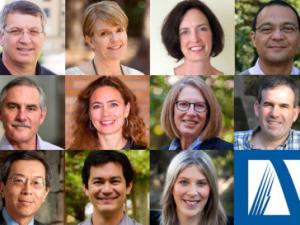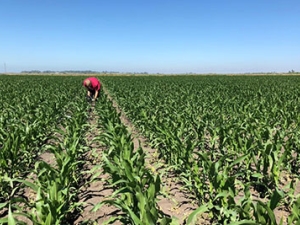

Research Bio
Whendee Silver is a biogeochemist and ecosystem ecologist whose research investigates carbon and nitrogen biogeochemistry and redox dynamics in natural and managed ecosystems. She is best known for her work on greenhouse gas fluxes and drivers and the role of ecosystems in mitigating climate change. Her group has pioneered continuous environmental sensing. Silver’s research integrates ecology, biogeochemistry, and environmental science to quantify how climate and land management affect greenhouse gas fluxes and ecosystem function. Her work contributes to climate mitigation strategies and sustainable ecosystem management.
She is Professor of Environmental Science, Policy, and Management at UC Berkeley and Faculty Scientist at Lawrence Berkeley National Laboratory. Her research has been published in wide range of scientific journals (See Google Scholar). Silver has been recognized for her achievements as a Kavli Frontiers of Science Fellow, and a Fellow of the American Geophysical Union, The Ecological Society of America, and the American Association for the Advancement of Science. At Berkeley, she teaches courses on ecosystem ecology, climate change science, and climate change solutions and mentors students in biogeochemical research.
Research Expertise and Interest
climate change, global change, greenhouse gases, ecosystem ecology, biogeochemistry, grasslands, tropical forests, carbon sequestration, environmental sensing
In the News
New Fellows of the American Association for the Advancement of Science
Improving soil quality can slow global warming
UC Berkeley Leads New Assessment of Bay Area Climate Impacts
Can ‘carbon ranching’ offset emissions in California?
Could cultivating dense fields of weeds help mitigate climate change by soaking up carbon dioxide from the atmosphere? Berkeley scientists Dennis Baldocchi and Whendee Silver are exploring that possibility in California’s agricultural heartland, the San Joaquin Valley. National Public Radio reports.
Featured in the Media
Simple practices that enhance soil quality on farms -- such as planting cover crops, composting, and sowing legumes -- could slow climate change by drawing significant amounts of carbon dioxide out of the atmosphere, a new study led by environmental science, policy and management professor Whendee Silver has found. "As someone who has been working on carbon sequestration for a long time, I have always had this question in the back of my mind, 'Will sequestration in soils make a difference with climate change at a global scale?'" Professor Silver says. "We found that there are a wide range of practices deployable on a large scale that could have a detectable worldwide impact. A big take-home message is that we know how to do this, it is achievable." For more on this, see our press release at Berkeley News. Other stories on this topic appeared in AZo Cleantech, Advocator, Courthouse News Service and Xinhua.



